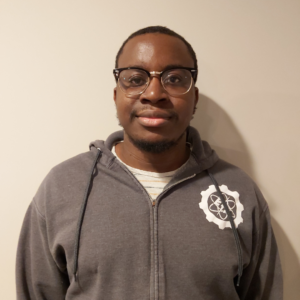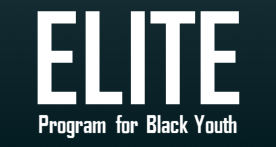
Author: Adiki Puplampu
Date: 29 March 2023
Darren was born in Nigeria but was raised for most of his life in St. Albert, Alberta. He is currently pursuing his PhD studies at the University of Alberta in the Faculty of Electrical & Computer Engineering.
Darren completed his undergraduate degree in Engineering Physics at the University of Alberta, where he participated in the engineering co-op program and worked two years with Stantec as a digital solutions software developer. In 2022, he was awarded an IBET Fellowship. Here is a Q&A with Darren about his experience as an IBET fellow and his professional aspirations.
Can you tell me a little bit about your path to engineering and the work you are currently doing in your PhD/Masters program?
Well I’ve intended to go into engineering since probably junior high. I took AP classes in high school and full sciences before coming to the UofA for engineering. I was initially focused on biomedical engineering because I was interested in the technology in that sector. But I ended up switching to the engineering physics program at the UofA because I like math a lot and the program had a broad science base and lots of interesting applications. So I ended up doing engineering physics and my final year was 2021 which was during COVID-19.
During that time I wasn’t sure what I was going to do, and my current supervisor reached out to let me know about a summer position he had related to ultrasound. Even though I wasn’t sure what I was going to do I wanted to see how I would like research. I had done one summer with another lab and I’d also done work in industry because I was in CO-OP but I was interested in more research experience. I found that I enjoyed it and found it interesting. The subject of the research was ultrasound biomedical generally, and after that my supervisor said he could take me on as a master’s student. So the next September I began studying for my masters. Through the IBET program I was able to switch from the masters to the PhD program one year in.
How has the IBET Program supported your academic work and professional aspirations?
So probably the biggest thing for me was the ELITE workshop that I attended in the summer. It was a workshop on entrepreneurship and I learned a lot. While I’m not planning to go and start a business it helped me look at the practical applications of technology and helped me look at it in a different way. The funding is also helpful. It makes everything much more feasible. I likely wouldn’t be doing a PhD over Masters at this point if it wasn’t for the fellowship.
In your opinion why is it important that a program like IBET exists in Canada?
I recognize that you want to have diversity in professorships and in the technology industry so that you can have different ideas. And it's definitely true that Indigenous people and Black people are relatively underrepresented in those regions. Having people with different life experiences and ways of thinking will generally diversify ideas. As long as those ideas are vetted, having more of them always opens more doors for discovery and innovation. So some degree of support is beneficial.
What difference do you think a program like IBET makes to the professional and academic ecosystem in your field?
Well, I definitely think that initiatives like this will increase representation to a degree. The effects probably won’t be seen for five years to a decade. But I definitely think that it’s an important avenue to increase representation.
As part of this fellowship program you were asked to participate in the ELITE Program Entrepreneurship Design Series and serve as a peer to peer mentor for the interns. Can you tell me a bit about your experience serving in that role?
Well we were put in teams and we had to create a start-up idea from ideation to demo and pitch. Working with some of the other ELITE interns it was interesting to meet all different types of people with their different inputs to the team. It was a fun activity and a useful experience. It definitely stoked a little bit of interest in mentorship for me.
When you look to the future how do you see yourself applying your knowledge and experience to support your community?
From my PhD program I would like to enter the industry and work to create imaging devices that can be used towards clinical applications potentially used for diagnosis. With regards to the IBET fellowship my experience has made me open to mentorship. I honestly haven’t given it much thought up to this point but it's something I’m potentially interested in.

